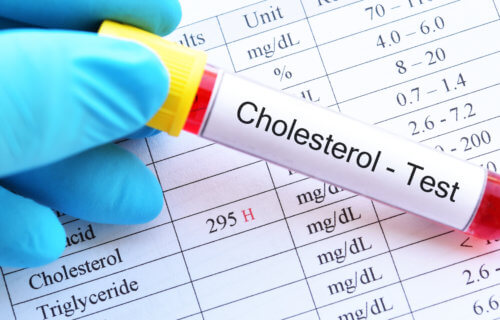BARCELONA, Spain — The line between “good” and “bad” cholesterol just became a little bit more blurry. Researchers in Spain say not all HDL cholesterol, or good cholesterol, particles are helpful when it comes to cardiovascular disease. Their study finds if those particles are too big, a person’s “good” cholesterol can actually lead to serious trouble.
HDL (high-density lipoprotein) cholesterol has a reputation of decreasing heart disease risk. Researchers say these particles help transport cholesterol deposits in the arteries down to the liver to be eliminated.
This is much different than LDL (low-density lipoprotein), or “bad” cholesterol. LDL causes cholesterol to build up in the arteries, increasing the risks for disease, heart attack, and stroke. Study authors say that while some drugs which lower levels of bad cholesterol do help reduce heart disease risk, there is less evidence that drugs which increase good cholesterol have the same effect.
A team from the Hospital del Mar Medical Research Institute (IMIM) examined this paradox, which calls into question whether good cholesterol really is “good” at all. Their findings reveal the size of HDL cholesterol particles plays a key role in how well they clean up arteries.
‘Good’ cholesterol can cause a heart attack?
Researchers analyzed genetic properties which determine the size of good cholesterol particles. They then observed the relationship these various particles have with increasing or decreasing heart attack risk. The results show that larger HDL cholesterol particles directly impact a person’s chances of having a heart attack. Genetic characteristics which produce smaller particles, on the other hand, lower heart attack risk.
“There is a positive causal relationship between the size of HDL cholesterol particles and the risk of heart attack, so although we have to increase the levels of good cholesterol in the blood, they must always be small particles,” explains the study’s principal investigator, Dr. Robert Elosua, in a media release.
“If we need to do something in relation to HDL, it is to increase the number of small particles, which are those that adequately perform the function of eliminating cholesterol, those that really move it to the liver for removal, and do not allow it to accumulate in the arteries and cause cardiovascular disease,” adds Dr. Álvaro Hernáez.
At the moment, researchers say there are no drugs which increase good cholesterol and lower heart disease risk.
“This study highlights new and potential therapeutic targets in the field of cardiovascular diseases, including several genes related to the qualitative aspects of HDL particles, which may contribute to cardiovascular prevention,” concludes Dr. Albert Prats, a researcher in the Epidemiology and Cardiovascular Genetics Research Group at the Hospital del Mar-IMIM.
The study appears in the journal Metabolism, Clinical and Experimental.
